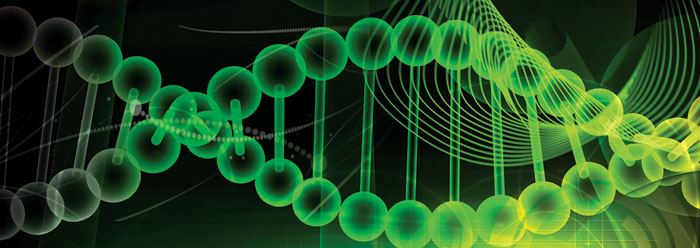Craig Venter, who led the first privately funded sequencing of the human genome, has for fifteen years been spearheading a team effort to make "synthetic life." He announced victory on May 20, 2010, and the research was published online in the journal Science. This is considered a significant breakthrough, as for the first time scientists claim to have created a "living organism."
What did they actually accomplish and do their results really raise "profound questions about the essence of life," as one news report stated?1
What Venter's company achieved was a technical feat that does not live up to its headlines. The team of scientists used machines to synthesize DNA from scratch. However, the particular DNA sequence they manufactured was an exact copy of pre-existing DNA from a living strain of bacteria.
The study authors stated, "This project was critically dependent on the accuracy of these [original bacterial] sequences." This is because even a slight error could ruin the resulting cell. They discovered this firsthand, when their "success was thwarted for many weeks by a single base pair deletion in the essential gene dnaA."2 Some portions, however, tolerated errors with no observed effects.
Once they accurately copied the exact required sequence of 582,970 DNA base pairs and then precisely synthesized the DNA itself--in shorter segments that were then added together--the synthesized genome was transferred to a type of yeast that is commonly used in laboratories. These yeast cells can accurately copy long sequences of DNA. So far, no human machine can do this. Yeast also has enzymes that maintain DNA integrity.
Finally, the researchers transferred the laboratory-synthesized, yeast-cloned DNA into a living bacterium that had its own DNA removed. The resulting cell grew and multiplied successfully in the lab.
So, after millions of dollars and man-hours, pre-existing information was copied from the realm of biology onto computers, and then placed back into the living world by purposefully manipulating both man-made and cellular machine systems. Thus, the resulting cell was not wholly synthetic--only its DNA was. But even that was an exact copy of an already functioning bacterial genome.
While this was a technical achievement of high rank, the scientists did not create a bacterial cell from scratch. Actually, they stated that "we refer to such a cell controlled by a genome assembled from chemically synthesized pieces of DNA as a 'synthetic cell', even though the cytoplasm of the recipient cell is not synthetic."2 And that cytoplasm, not to mention the protective cell wall, already has the machines required for cellular tasks like carrying sugars, copying DNA, removing wastes, converting energy, regulating production speeds, communicating with the environment, and so on.
There is no biblical mandate that precludes mankind from attempting to build bacteria.3 In fact, it could serve at least two good purposes. First, the biotechniques that these scientists pioneered could improve medical technology. Second, by encountering the specificity with which these bacterial cells are constructed, investigators can get a closer look at the genius of the real Architect, whether or not He is acknowledged. In light of what the Lord Jesus did in creating a whole, reproducing cell without a reference template, what little they achieved nevertheless "was complicated and required many quality control steps."2
This research verifies that the Creator's handiwork is fabulous. If a team of brilliant scientists only succeeded in copying information from a germ to a computer and back to a germ, then the Originator of that information must be far more brilliant and worthy of acclaim.
References
- Cookson, C. Scientists create a living organism. Financial Times. Posted on ft.com May 20, 2010, accessed May 20, 2010.
- Gibson, D. G. et al. Creation of a Bacterial Cell Controlled by a Chemically Synthesized Genome. Science Express. Published online May 20, 2010.
- Like plants, bacteria do not possess the "breath of life." See Morris, J. 1991. Are Plants Alive? Acts & Facts. 20: (9).
* Mr. Thomas is Science Writer at the Institute for Creation Research.
Cite this article: Thomas, B. 2010. Have Scientists Created a Living Cell? Acts & Facts. 39 (7): 17.




















